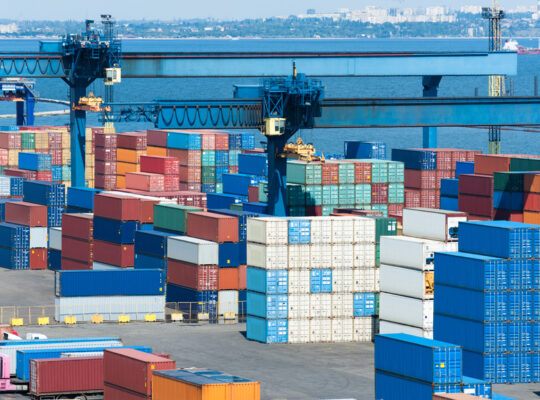Logistics plays a vital role in the supply chain management process. It is the process of planning, implementing, and controlling the movement of goods from the point of origin to the point of consumption. Logistics involves the coordination of resources such as people, materials, and equipment to ensure that products are delivered to customers in a timely and cost-effective manner.
The importance of logistics in today’s global economy cannot be overstated. Logistics professionals face many challenges, including rising fuel costs, increasing customer demands, and the need to comply with regulations. However, technology is being used to improve logistics operations, and logistics professionals are finding new ways to overcome these challenges.
There are different types of logistics, such as inbound logistics, outbound logistics, and reverse logistics. Inbound logistics involves the transportation of raw materials and goods from suppliers to manufacturers. Outbound logistics involves the transportation of finished goods from manufacturers to customers. Reverse logistics involves the transportation of goods from customers back to manufacturers.
Logistics is an essential part of supply chain management. It helps businesses to deliver products to customers in a timely and cost-effective manner. Logistics also helps businesses to reduce costs, improve efficiency, and increase customer satisfaction. By streamlining the supply chain management process, logistics can give companies a competitive advantage and bring value to customers.
According to NetSuite logistics is the part of the supply chain involved in managing the forward and reverse flow and storage of goods, services, and related information between the point of origin and the point of consumption to meet customers’ requirements. Logistics influences growth in the supply chain. The essential role logistics plays in supply chain management is clear in the digital age. Businesses of all sizes can scale logistics operations and generate massive growth through new technologies like artificial intelligence and machine learning. Technological innovations assist logistics in delivering the right products at the right time, reducing costs and improving efficiency, helping retain customers and increasing loyalty, and providing a unique value proposition for some businesses.
In conclusion, logistics is an essential part of supply chain management. It helps businesses to deliver products to customers in a timely and cost-effective manner. Logistics also helps businesses to reduce costs, improve efficiency, and increase customer satisfaction. By streamlining the supply chain management process, logistics can give companies a competitive advantage and bring value to customers.
Types of Logistics Companies
There are several types of logistics companies that businesses can use to manage their supply chain. Here are some of the most common types:
- Freight companies: These companies specialize in moving freight from one place to another. They can transport goods domestically or internationally using different modes of transportation such as air, sea, rail, or road. Freight companies can offer more than one transportation option, while others will have a singular focus.
- Freight forwarders: These companies work with a variety of freight companies to arrange and negotiate the transportation of freight. They do not actually move freight but find the most efficient and affordable ways to move products. Freight forwarders are often used when moving products internationally. They handle customs paperwork, any import/export paperwork required for your shipment, rate negotiation with the different carriers, and coordination of freight handling and delivery.
- Carriers: Unlike freight forwarders, carriers handle the freight shipment directly. They make money by moving products around the country and world. Trucking companies, rail services, ocean freight, and air freight are all examples of carriers. In most cases, shipments require multiple carriers to reach their final destinations.
- Third-party logistic providers (3PLs): These companies provide outsourced logistics for all or part of the supply chain logistics function of a business. The services and depth to which a 3PL is able to integrate into your supply chain will vary. Some will offer transportation and storage services for freight, while others will integrate technology products or be the logistics department of a business1.
- Fourth-party logistic providers (4PLs): These companies are similar to 3PLs but provide more comprehensive supply chain management services. They manage the entire supply chain, including logistics, procurement, and inventory management. 4PLs are often used by large companies that have complex supply chains.



